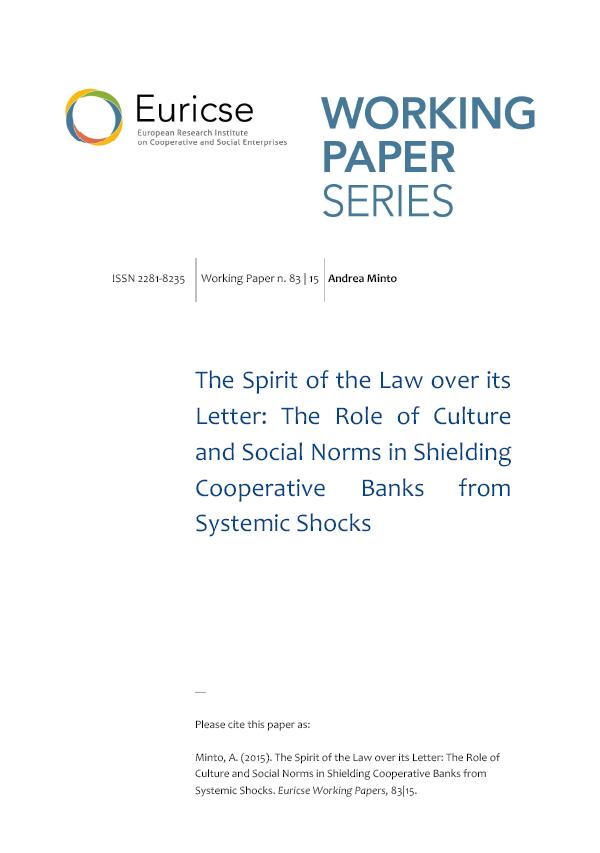WP 83 | 15 The Spirit of the Law over its Letter: The Role of Culture and Social Norms in Shielding Cooperative Banks from Systemic Shocks
The macroeconomic impact of banks’ misconduct led users of financial services to be deterred from using the system to the detriment of market integrity and called upon policy makers and supervisors to turn to “culture” as a means to regain public trust and eventually guarantee the stability of the real economy. From this vantage point, the crisis showed that culture did indeed matter, as it can significantly influence the effectiveness of decision-making process and, thus, the risk appetite/profile of banks.
Culture and behaviour have shown to be the main threat to financial stability policy makers and supervisors have currently to cope with. What is already clear is that culture is an important subject to focus on when supervising banks. Nevertheless, the problem is that current academic thinking lacks both clarity and expertise on what “culture” is all about and how it should be implemented by banks.
This paper addresses this gap by exploring the illustrative case of cooperative banks. Extensive empirical evidence shows indeed that cooperative banks turned out to be more stable than commercial banks for several reasons related to the ownership structure and the business model. However, the extant literature lacks to take into account whether cooperative values (i.e. solidarity; mutualism; proximity; social commitment) contributed in motivating employees to do the right thing and to steer away from reckless behaviour. The investigation brings to the fore the main question of whether and how cooperative banks’ values and culture played a role in ensuring the soundness and efficiency of risk-taking policies.

